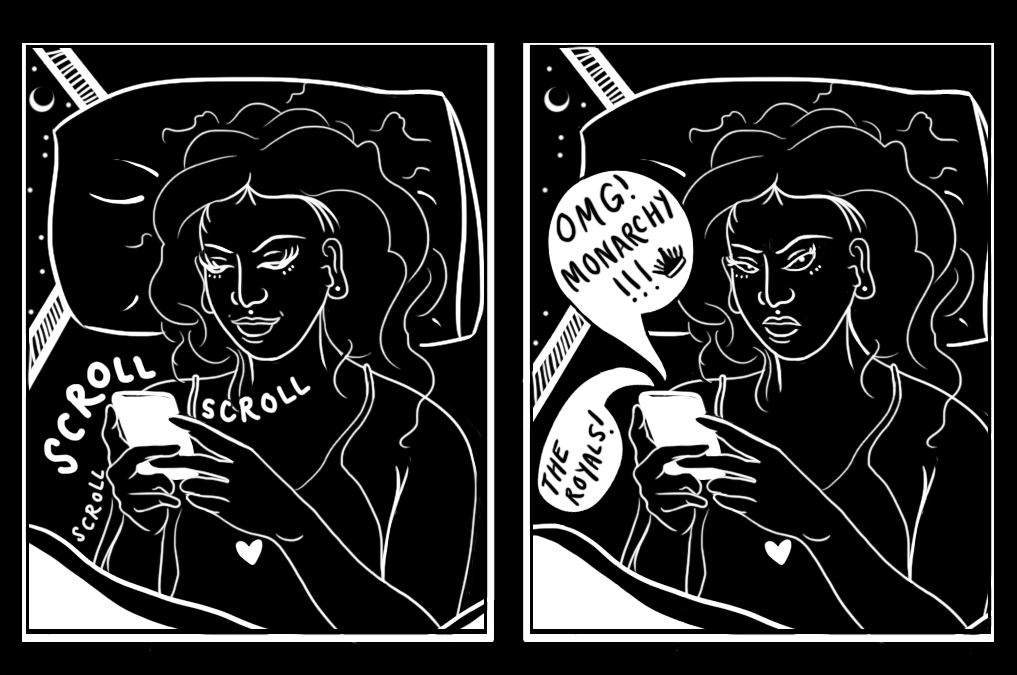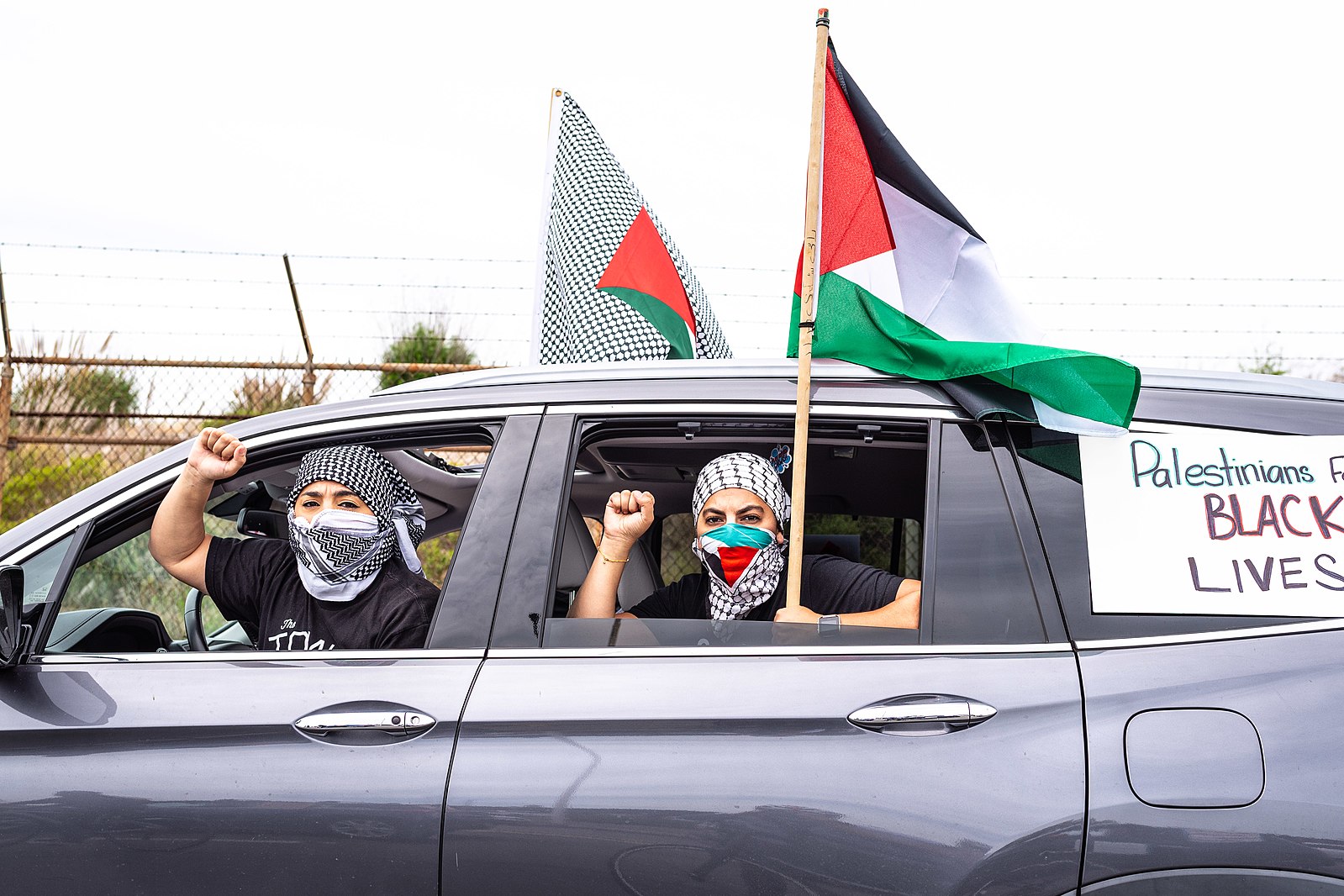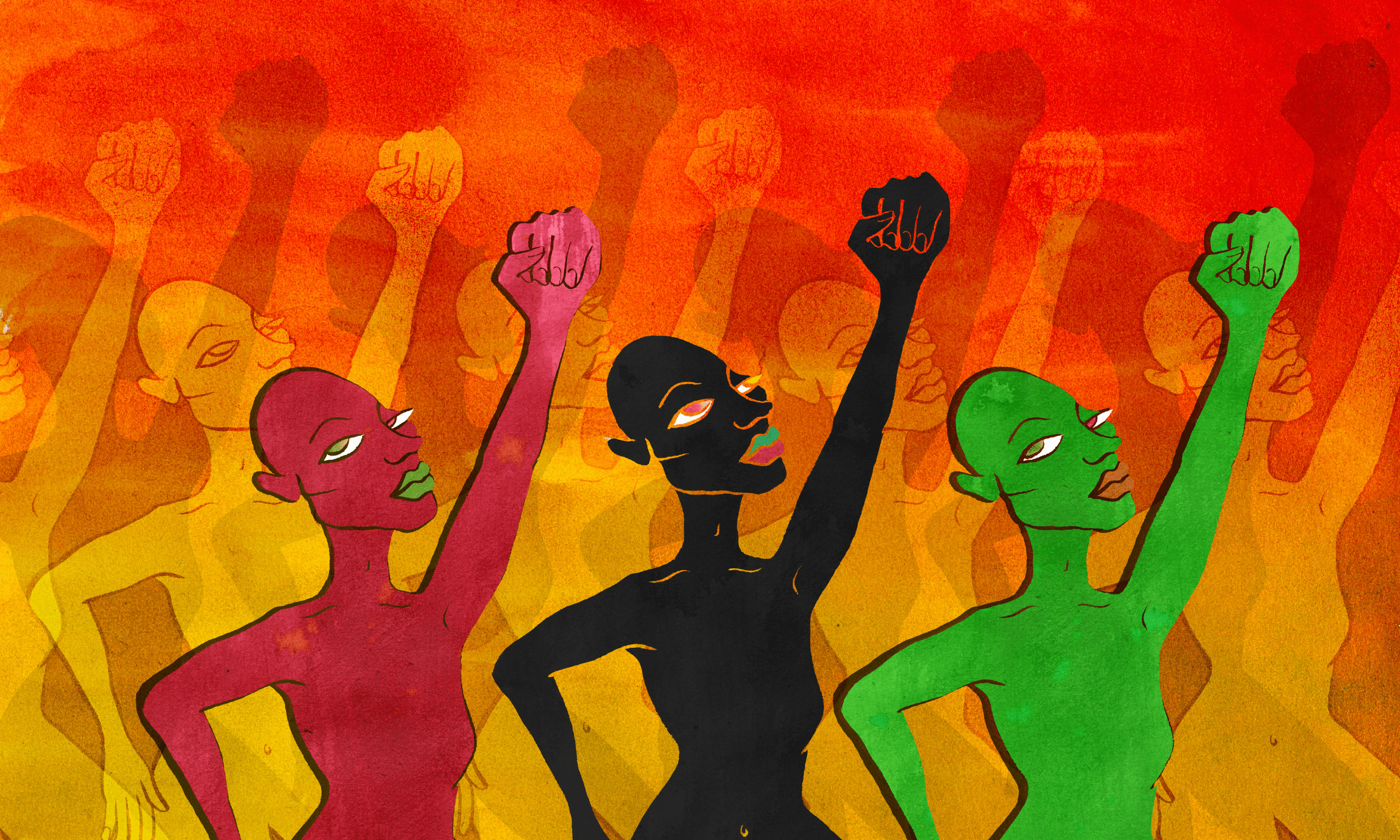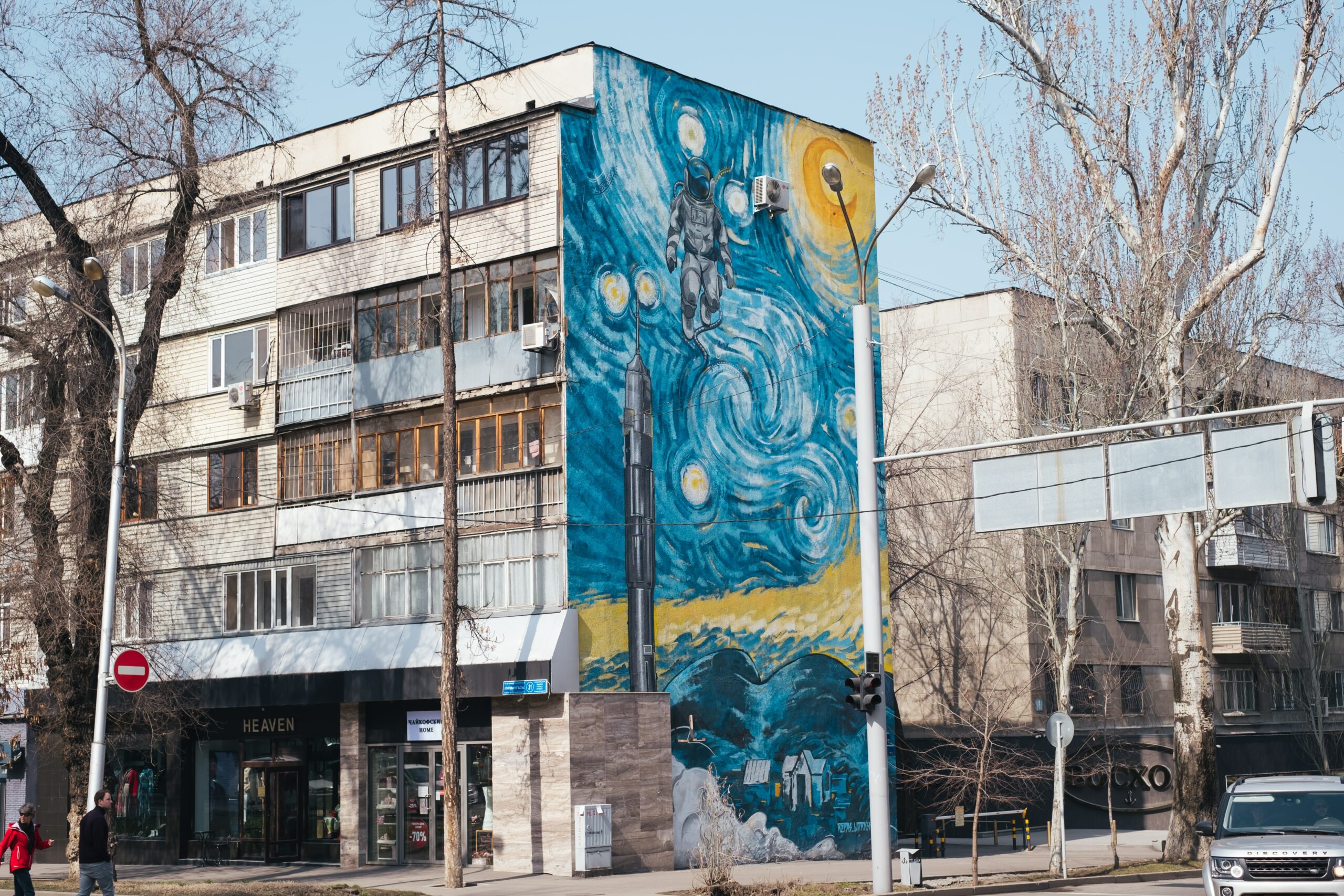
Royal wedding fever. Judging by the homepage of every news platform going, it is the malady that cannot be cured by any number of antibiotics, cold compresses, or the old Anglo-Boer War remedy: a gin and tonic. But does anyone actually, really, care?
When I surveyed friends and family of all political persuasions about Britain’s royal family and the upcoming nuptials, responses ranged from a tangential: “did you know the Queen can strip down the engine of the Land Rover?” to a mildly perturbed, “what I want to know is how Meghan got her British citizenship so quickly”. Meghan Markle, in fact, doesn’t yet have citizenship, but she likely won’t struggle to vault over the obstacles that most face in order to reside in the UK with their spouses. As the UK media whips itself into a frenzy about who will bake the wedding cake (East London’s Violet’s), who has made the invite list (Trump no, Spice Girls yes), and whether Markle will pay for her own dress (to paraphrase Beyoncé, Markle’s ice and cash are both real, thanks to her successful – albeit now concluded – acting career), the number of public celebrations organised in some areas of the UK have plummeted by 90%.
When Markle and Prince Harry announced their engagement in November 2017, the internet was awash with razor-sharp hot takes. However, as the big day approaches, beyond a sisterly appreciation for black joy and a smug confidence that she’ll obviously look absolutely banging, is anyone still interested in this union? Does the couples’ marriage actually mean much to the average person, beyond piquing quotidian curiosity for two high-profile celebrities tying the knot? Or is royal wedding fever, ironic, kitsch or otherwise, all just a bit 2011?
“Royal wedding fever is merely another case of the UK media hyping up something utterly inane in order to report on it”
Perhaps the mild lack of interest belies the deep-seated, ravaging racism of a nation unable to handle the idea of, perhaps not for the first time, a mixed race black woman marrying into the house of Windsor. As a theory I totally buy it (to quote one person I surveyed: “you know how well the British hide their racism, but you can see it in their eyes”), however, I suspect the reality is much more banal. A YouGov poll revealed that half of those surveyed described being “indifferent” to the news of Meghan and Harry’s engagement, and 4% were actively “disappointed” – a remarkable statistic, bearing in mind that just under 50% of the UK’s population obtains their political insights from racist right-wing titles The Sun and/or the Daily Mail. A recent Ipsos Mori Global Advisor poll which surveyed people in 28 countries also revealed that 67% are not interested in the wedding at all.
More likely, royal wedding fever is merely another case of the UK media hyping up something utterly inane in order to report on it, when we could be focusing on something else. Literally anything else. Instead, today outlets will be circling like eagles in anticipation of the first slip, trip or gaffe. However minor the incident, it will be sure to provide a feast from which journalists will devour carrion for weeks to come.
“In 2016, creators of the #notmyprince hashtag demanded a public apology for the royal family’s involvement in slavery”
So, if what the polls are saying is true, why don’t we care about the royal wedding? It would be naively optimistic to suggest that the royal family’s inextricable relationship with colonialism and imperialism has finally become something to be derided. However, there are certainly solid grounds for shunning the household and everything related to it: in 1660 the Duke of York (later to take the throne as James II) founded the Royal African Company which over the course of two decades transported 90,000 to 100,000 enslaved people across the Atlantic. In 2016, creators of the #notmyprince hashtag Nalini Mohabir and Jermain Ostiana demanded a public apology for the royal family’s historical involvement in slavery as Prince Harry embarked on an official tour of seven Caribbean countries. The campaign published a single, clear demand: “Prince Harry, show us how woke you are, and atone for the royals’ institutional role in slavery.”
Fast forward 350 years, and the Queen still sits as the Head of the Commonwealth. The Commonwealth was described by Jacob Rees-Mogg (a Tory MP who tweets in Latin, voted against equal marriage, and wants to repeal the Human Rights Act) as “a group of friendly countries who have some shared history who come together voluntarily”. More accurately, it is an organisation of member states, most of whom are former colonies of the British Empire, over whom Britain leveraged white supremacy and violent economic exploitation to rape and pillage people and resources. Viewed from this perspective, Britain’s intention in forming the Commonwealth is arguably the equivalent of the abusive ex-partner who airs your messages but still wants to be friends on Facebook so they can trawl through your photos.
Membership of the Commonwealth doesn’t appear to be accompanied with a commitment from the UK to treat countries with anything less than lukewarm colonial paternalism, and a centuries-old zeal for using its subjects until they no longer serve an economic purpose. Just last month, the #windrushdeportations scandal exposed that the UK government has been systematically targeting Caribbean residents for forced removal. A whistle-blower in the Home Office revealed that the government had destroyed landing cards from the HMT Empire Windrush, rendering a whole generation of Caribbean elders undocumented. The façade of the Commonwealth is evidently about Britain writing cheques that it has no intention of cashing. This approach seeks to uphold all of the pretensions of what the Queen described in her 1953 Christmas Day broadcast as “the Spirit of Man: friendship, loyalty, and the desire for freedom and peace”, but none of the substance.
“Britain refuses to return the Koh-i-Noor diamond which has sat in the Queen’s crown since it was stolen by the British East India Company in 1937”
The British heads of state have never meaningfully apologised for colonialism, or delivered reparations to the countries and communities it enslaved and continues to drain resources from. Of course, colonialism is by no means a period confined to history books: 101 companies listed on the London Stock Exchange currently have mining operations in African countries, and control resources worth over $1 trillion. In 2013 David Cameron defended his decision not to apologise for the 1919 Amritsar massacre, in which troops of the British Indian Army murdered between 400 and 1,000 Indian people in the Jallianwala Bagh garden. Britain also continues to refuse to return the Koh-i-Noor diamond, which in 1937 was stolen from 10-year old heir to the throne Duleep Singh by the British East India Company whilst they held his mother hostage. To this day, the diamond remains mounted in the Queen’s crown.
Due to the close watch and steer of the royal household’s PR team, overtly racist comments made by members of the royal family only infrequently receive public attention. Nonetheless, in 2005, Prince Harry was photographed wearing a desert Nazi uniform at a “natives and colonials” themed costume party (perhaps a follow-up to Prince William’s Out of Africa themed 21st birthday knees-up). In 2017 royal diarist Sir Roy Strong revealed that the Queen Mother had made a series of racist comments to him, including warning him to “Beware the blackamoors” and reportedly advising him that, “the Africans just don’t know how to govern themselves…what a pity we’re not still looking after them.” Of course, it would be remiss to overlook Prince Phillip’s extensive portfolio of racist slurs, such as: warning a British student in China in the 1986 that “If you stay here much longer, you will go home with slitty eyes”; asking a Kenyan woman in 1994 at an award ceremony “You ARE a woman, aren’t you?”, and in a visit to Queensland in 2002 asking Aboriginal elder William Brin “Do you still throw spears at each other?”.
The above are all excellent reasons for disengaging from the royal wedding and all of its trappings. However, as Britain maintains its relentless inability to address its colonial legacy, it is more likely that interest in the well-mannered delights and vanilla peccadilloes of the royal household just doesn’t provide the kind of high-octane subtweetable fuel the 24-hour digital news machine requires. More succinctly: the Royals are simply continuing a slow decline into total cultural irrelevance. One could argue that any remaining interest in the FKA Saxe-Coburg-Gothas is wholly thanks to Markle herself, who bucks the trend of the majority of Britain’s royal figureheads by having any political reflectivity whatsoever. In a 2015 article for ELLE, Markle described slavery as “shatteringly recent”. She also recounted being instructed by a teacher to tick ‘Caucasian’ on a census form because she could pass as white, and described the racialised sexist abuse she received on Twitter when a dark-skinned black actor was cast as her character’s father on Suits.
“Even Markle’s relative proximity to whiteness and the highest echelons of respectability politics cannot protect her”
Where does this leave us? The irony of wading a few thousand words into an article about the royal wedding which chastises “the media” for cooking up untold legions of think pieces on a wedding that nobody cares about is not lost. At the same time, as a person with copious amounts of light skin privilege, it’d be remiss of me to hail Markle’s nuptials as a win for representation. It goes without saying that even Markle’s relative proximity to whiteness and the highest echelons of respectability politics cannot protect her from the talons of the European press.
As a grandchild of the Windrush generation, I cannot view a royal function with anything other than a certain amount of pain, as many among my grandparents’ generation remain to this day loyal to a queen and country that cages them within an increasingly hostile environment. It’s time to wrap up the leftovers and pack away the bunting: Britain’s continued reverence for a deeply questionable relic of its imperial past and present, and the public spectacle of royal weddings is no cause for celebration.









